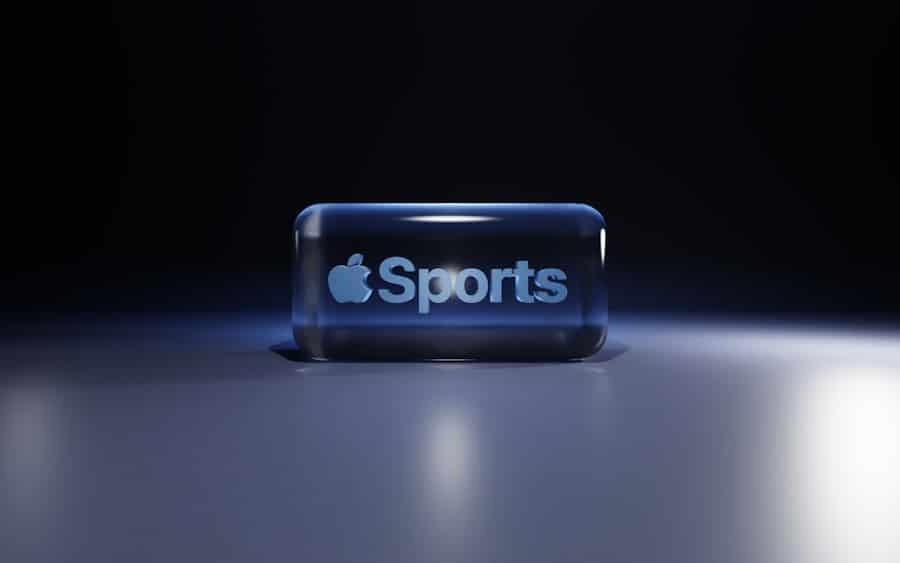The phenomenon of esports has transformed from a niche hobby into a global spectacle, attracting millions of viewers and participants alike. This meteoric rise has not gone unnoticed by brands and corporations, leading to a significant increase in sponsorships within the esports industry. In the early days, sponsorships were primarily limited to gaming hardware companies, but as the audience for esports expanded, so too did the range of sponsors.
Today, major brands from various sectors, including automotive, beverage, and technology, are investing heavily in esports sponsorships, recognizing the potential to reach a young, engaged demographic that traditional advertising methods often fail to capture. The growth of esports sponsorships can be attributed to several factors. First and foremost is the sheer scale of the audience.
Major tournaments can draw millions of live viewers, both online and in-person, creating a unique platform for brands to showcase their products and services. Additionally, the rise of streaming platforms like Twitch and YouTube Gaming has made it easier for fans to engage with their favorite games and players, further amplifying the reach of sponsorships. As esports continues to gain legitimacy and recognition as a professional sport, the influx of sponsorship dollars is expected to grow, solidifying its place in the broader sports marketing landscape.
Key Takeaways
- Esports sponsorships have seen a significant rise in recent years, with brands and organizations investing heavily in the industry.
- The impact of esports sponsorships on the industry has been substantial, leading to increased revenue, exposure, and legitimacy for professional gaming.
- Brands and organizations benefit from esports sponsorships through increased brand awareness, access to a highly engaged audience, and the opportunity to align with a growing industry.
- Esports sponsorships are attracting new audiences by tapping into the global popularity of gaming and providing unique and interactive marketing opportunities.
- The evolution of esports sponsorships has seen a shift towards more strategic partnerships, innovative activations, and a focus on long-term sustainability in the industry.
The Impact of Esports Sponsorships on the Industry
Esports sponsorships have had a profound impact on the industry, not only in terms of financial support but also in shaping the overall ecosystem. The influx of capital from sponsors has enabled teams and organizations to invest in better training facilities, coaching staff, and player development programs. This professionalization of esports teams has led to improved performance and competitiveness on the global stage.
For instance, organizations like Team Liquid and Fnatic have leveraged sponsorship funds to create comprehensive training regimens that mirror those found in traditional sports, thereby elevating the level of play and viewer experience. Moreover, sponsorships have facilitated the growth of grassroots esports initiatives. Many brands are now investing in local tournaments and community events, fostering talent at the amateur level.
This investment not only helps to cultivate future stars but also strengthens the overall community surrounding esports.
This symbiotic relationship between sponsors and the esports community is crucial for sustaining long-term growth and engagement.
The Benefits for Brands and Organizations
For brands, entering the esports arena presents a unique opportunity to connect with a highly engaged audience that is often difficult to reach through conventional marketing channels. The demographic profile of esports fans skews younger, with a significant portion being part of Generation Z and Millennials. These groups are known for their brand loyalty and willingness to engage with brands that resonate with their interests.
By sponsoring esports events or teams, brands can create authentic connections with these consumers, fostering loyalty that can translate into long-term sales. Additionally, the interactive nature of esports allows for innovative marketing strategies that go beyond traditional advertising. Brands can engage fans through in-game promotions, exclusive merchandise collaborations, or interactive experiences during live events.
For example, Coca-Cola has successfully integrated its brand into various esports tournaments by creating unique fan experiences that enhance engagement while promoting its products. This level of interaction not only boosts brand visibility but also creates memorable experiences that resonate with fans long after the event has concluded.
How Esports Sponsorships are Attracting New Audiences
Esports sponsorships are not only appealing to existing fans but are also instrumental in attracting new audiences to the gaming world. As brands invest in high-profile events and partnerships, they bring along their own customer bases, introducing them to the excitement of competitive gaming. For instance, when traditional sports franchises like the NBA began investing in esports teams or leagues, they attracted their loyal fan bases into the realm of gaming.
Moreover, sponsorships often come with promotional campaigns that leverage mainstream media channels. Brands like Intel and Red Bull have utilized television commercials and social media campaigns to highlight their involvement in esports, effectively reaching audiences who may not actively follow gaming but are intrigued by its cultural significance.
By showcasing high-stakes tournaments or featuring popular streamers in their advertisements, these brands are able to pique interest among potential new fans who might not have previously considered engaging with esports.
The Evolution of Esports Sponsorships
The landscape of esports sponsorships has evolved significantly over the past decade. Initially dominated by hardware manufacturers and gaming peripherals companies, the sponsorship ecosystem has expanded to include a diverse array of industries. Today, brands from sectors such as automotive (e.g., BMW), fast food (e.g., McDonald’s), and even financial services (e.g., Mastercard) are making substantial investments in esports.
This diversification reflects a growing recognition of esports as a legitimate marketing channel capable of delivering measurable results. Furthermore, the nature of sponsorship deals has also transformed. In the past, sponsorships were often limited to logo placements on team jerseys or event banners.
However, modern partnerships are increasingly multifaceted and strategic. Brands now seek deeper integration with teams and events through content creation, co-branded merchandise, and experiential marketing initiatives. For example, partnerships between teams and sponsors often include collaborative content on social media platforms or joint appearances at conventions and expos.
This evolution signifies a shift towards more meaningful relationships between brands and the esports community.
The Future of Esports Sponsorships

Looking ahead, the future of esports sponsorships appears bright as both the industry and its audience continue to grow. With projections indicating that global esports revenues could surpass $1 billion annually within a few years, brands are likely to increase their investments in this space. As more companies recognize the potential for engagement with younger consumers through esports, we can expect an influx of innovative sponsorship models that leverage emerging technologies such as virtual reality (VR) and augmented reality (AR).
Additionally, as esports becomes more mainstream, there will likely be an increase in regulatory scrutiny regarding sponsorship practices. Issues such as responsible advertising and ethical considerations around targeting younger audiences will come to the forefront as brands navigate this evolving landscape. Companies will need to be mindful of their messaging and ensure that their partnerships align with values that resonate with both gamers and non-gamers alike.
The Role of Esports Sponsorships in Professional Gaming
Esports sponsorships play a critical role in professional gaming by providing financial support that enables teams to operate at a high level. This funding is essential for covering expenses such as player salaries, travel costs for tournaments, and investments in training facilities. Without these sponsorships, many teams would struggle to remain competitive or even exist at all.
The financial backing from sponsors allows organizations to attract top-tier talent and invest in infrastructure that enhances their chances of success. Moreover, sponsorships contribute to the overall legitimacy of professional gaming as a career path. As more brands align themselves with esports organizations, it sends a message that professional gaming is a viable profession worthy of investment.
This validation can inspire aspiring gamers to pursue careers in esports while also encouraging educational institutions to develop programs focused on gaming management and related fields. The presence of reputable sponsors lends credibility to the industry as a whole, further solidifying its status as a legitimate form of entertainment.
The Challenges and Opportunities in Esports Sponsorships
While there are numerous opportunities within esports sponsorships, challenges also abound. One significant hurdle is the rapidly changing landscape of gaming trends and audience preferences. Brands must remain agile and adaptable to keep pace with shifts in popular games or platforms that could impact their sponsorship strategies.
For instance, a game that is immensely popular today may lose traction tomorrow due to emerging titles or changes in player behavior. Additionally, measuring the return on investment (ROI) for esports sponsorships can be complex. Unlike traditional sports where metrics such as ticket sales or merchandise revenue provide clear indicators of success, esports often relies on digital engagement metrics that can be harder to quantify.
Brands must develop sophisticated analytics tools to assess the effectiveness of their campaigns accurately. Despite these challenges, opportunities abound for brands willing to invest thoughtfully in esports sponsorships. As technology continues to advance, new avenues for engagement will emerge—such as interactive live-streaming experiences or gamified advertising campaigns—that can enhance brand visibility while providing value to fans.
By embracing innovation and staying attuned to audience preferences, brands can navigate the complexities of this dynamic landscape while reaping substantial rewards from their investments in esports sponsorships.
In the rapidly evolving world of esports, sponsorships play a crucial role in driving growth and expanding the reach of competitive gaming. A related article that delves into the tools supporting this dynamic industry is Best Software for 3D Animation. This piece explores the cutting-edge software that enhances the visual appeal of esports, making it more engaging for audiences and attractive to sponsors. By leveraging advanced 3D animation tools, esports events can create immersive experiences that captivate viewers, thereby increasing sponsorship opportunities and fueling further growth in the sector.
FAQs
What are esports sponsorships?
Esports sponsorships are partnerships between esports organizations, teams, or individual players and brands or companies. These partnerships involve the promotion of a brand’s products or services through various marketing activities within the esports industry.
How do esports sponsorships fuel growth in the industry?
Esports sponsorships fuel growth in the industry by providing financial support to teams and players, which allows them to invest in training, equipment, and infrastructure. Additionally, sponsorships help increase the visibility and popularity of esports, attracting more fans and potential investors to the industry.
What types of companies typically sponsor esports teams or players?
A wide range of companies sponsor esports teams or players, including technology brands, energy drink companies, apparel and footwear brands, and gaming hardware manufacturers. Additionally, non-endemic brands from industries such as automotive, food and beverage, and financial services are increasingly entering the esports sponsorship space.
What benefits do sponsors receive from esports partnerships?
Sponsors receive various benefits from esports partnerships, including brand exposure to a highly engaged and global audience, the opportunity to align with a rapidly growing industry, and the ability to connect with a younger demographic that is difficult to reach through traditional advertising channels.
How do esports sponsorships impact the overall growth of the esports industry?
Esports sponsorships play a significant role in the overall growth of the industry by providing the financial resources needed for teams and players to compete at a high level, as well as by contributing to the professionalization and commercialization of esports as a legitimate and sustainable industry.

